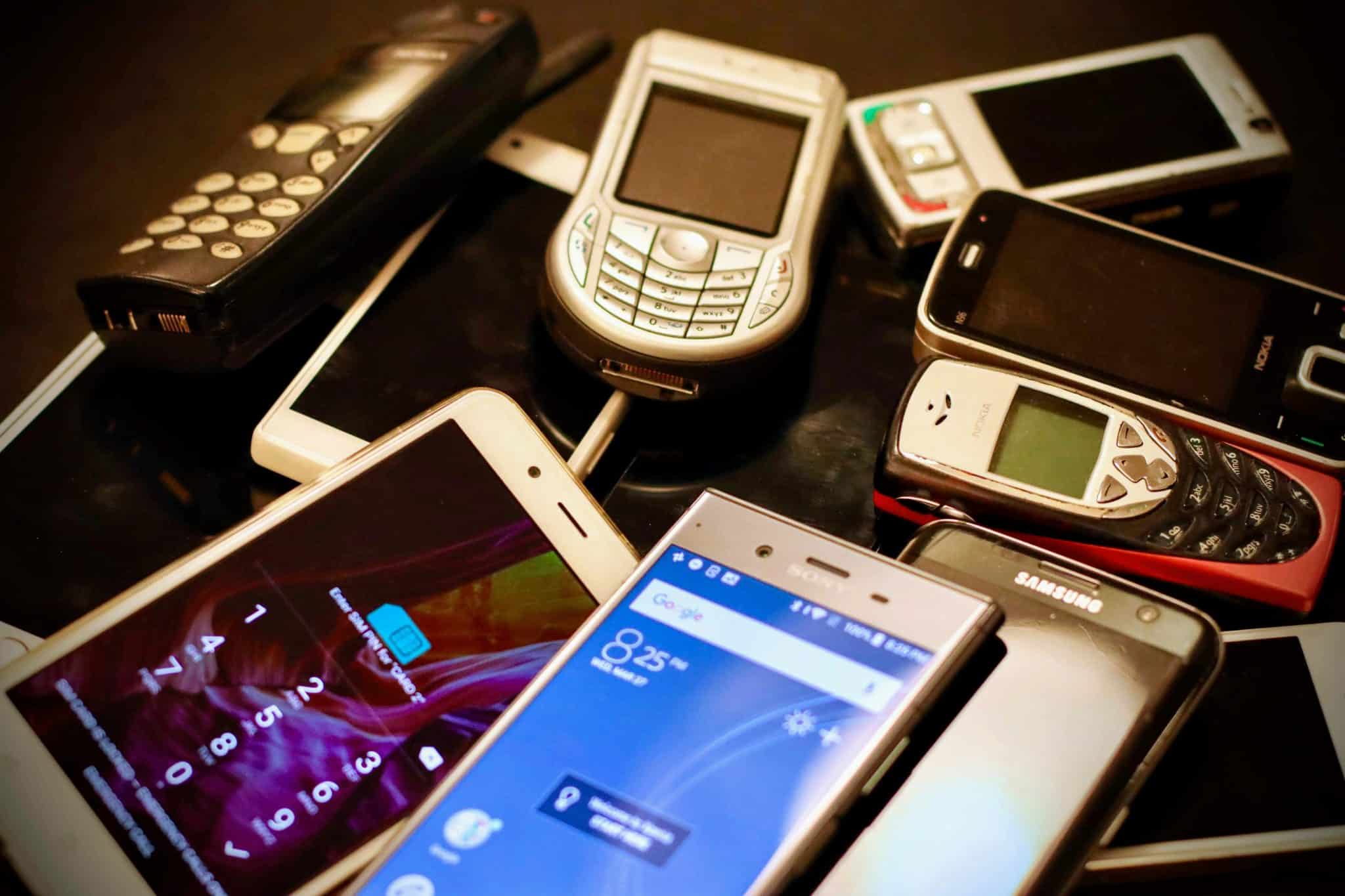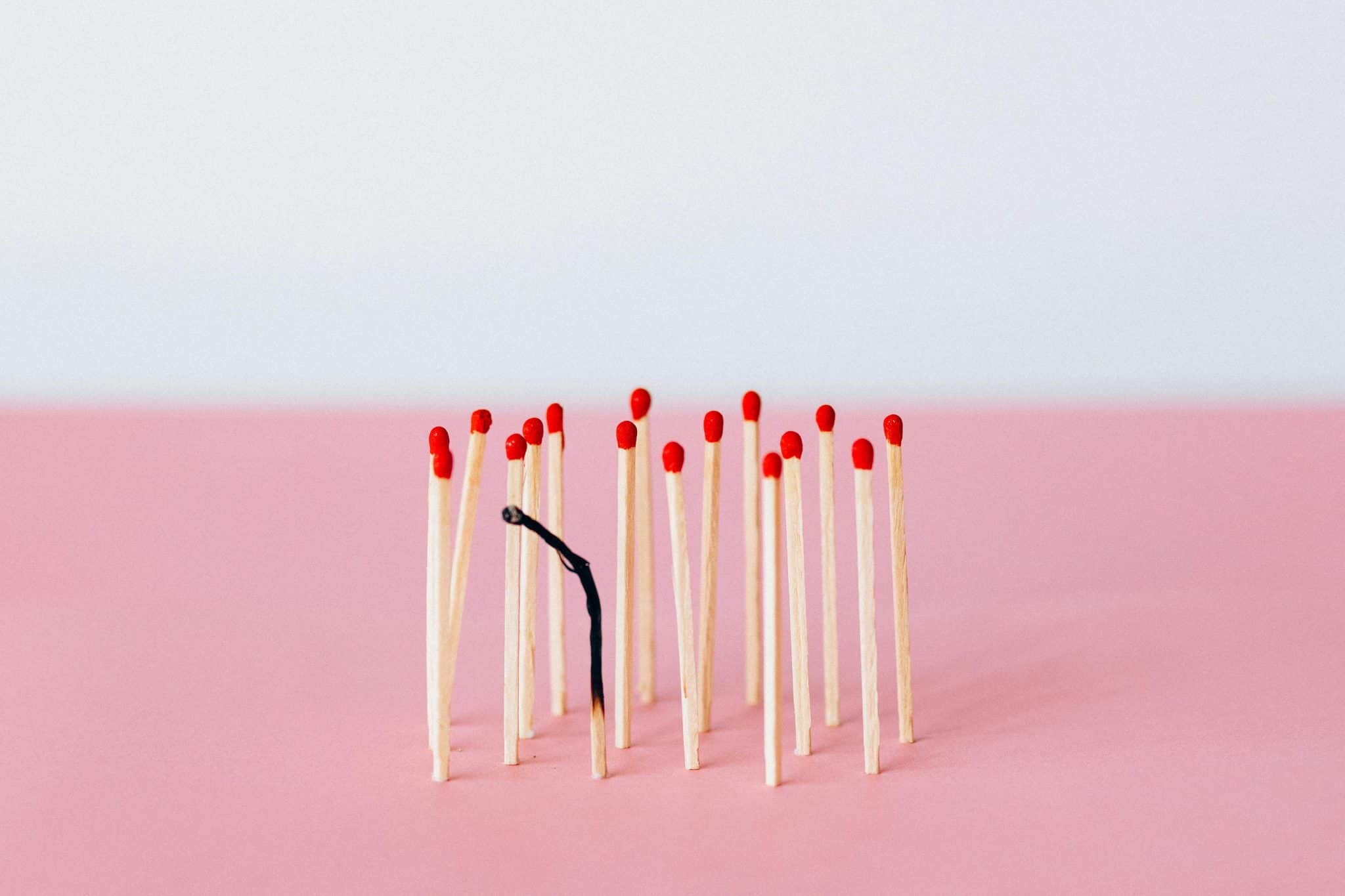Expert Curt Steinhorst on Reclaiming Your Focus in the Age of Distraction

Meet Curt Steinhorst.
Curt is a productivity expert and founder of Focuswise, a consultancy that aims to help organizations overcome the distinct challenges of the constantly-connected workplace.
After spending years studying the impact of tech on human behavior, Curt is on a mission to rescue us from our distracted selves.
He is a leading voice in strategic communication, speaking more than 75 times a year to everyone from global leadership associations and nonprofits to Fortune 100 companies. Curt is also the author of the book Can I Have Your Attention?, a book that teaches you how to combat your distractions and reclaim your attention in all areas of your home and work life.
With tons of experience in distraction and focus, we decided to sit down with him this week to learn a little more about his tools and techniques for beating distraction and finding the focus to do the things that matter most.
Firstly, what started it all for you? When did you realize that your relationship with technology was something that needed to be examined, monitored, and actively sculpted?
A few years out of school, I started a company doing what I loved most in the world: helping people discover, craft, and share their message with the world. Every day, I worked with NFL players, TV personalities, and Olympians to help them communicate better to their audiences.
It was my dream job. It should have been the best time of my life. Instead, I was miserable.
It wasn’t the work that was the challenge. It was that I’d look up and I would have 43 different emails started, two text threads going, and not have a clue whether my checkbook even balanced. I couldn’t focus on the things that were critical to actually create a successful business.
Communication was my passion, my entire life’s work. And now it was also destroying my business.
Eventually, I hit a breaking point. I was two weeks late on a major deadline I had promised to a client–an NFL Hall of Famer, no less. What’s worse, the Hall of Famer was my grandfather’s favorite football player of all time. What’s even worse, is that same Hall of Famer had, at my request, just recorded a personal video for my grandmother on her 90th birthday. And here I was ghosting him. This is the third “just checking in” email he sent me – the previous two I completely ignored. It looks friendly, but it was a clear indictment.
What piece of research regarding productivity, attention, and/or technology have you found most astounding?
At this point, very little surprises me. Around 60 percent of online retail purchases occur during working hours. Actually – here’s one: In one study that monitored phone usage for five days, 87 percent of people checked their phone at least once between the hours of midnight and 5 AM.
When/where are you most/least productive and how does this shape your daily routine?
In terms of time, my ability to focus is a depreciating asset. After a short ‘warm-up’ where I respond to a few quick emails to get my head into work, I MUST use my morning to dive into the work that requires the most focus. Otherwise, I’m toast.
In a perfect world, I would always do my most important work in the same location every day — using the same location every day can help condition our brains to focus better in that spot. However, due to my travel schedule (I’m on the road about 150 days a year), I have to replace a particular location with a consistent ritual. I put my headphones in and the “White Noise” app on ‘ocean waves.’ The one location key: I cannot have anyone I know in eye or earshot. For example, I have to sit at a different table from my wife when she joins me on a work trip — all I wanna do is talk to her and I get nothing done!
What are your biggest distractors?
Over time, I have been able to set up pretty good boundaries around my classic distractions like WhatsApp threads from friends, fantasy football, and really cute videos from my wife of our kids. The things that really distract me today are more around my internal desire to check my inbox and review all that I have in front of me rather than to actually focus in on particular tasks. It’s the overall volume that can cause me paralysis. Though a few of my friends have gotten used to me being nonresponsive on WhatsApp, so they shoot me an iMessage because they know I’m more likely to actually check it since my community isn’t active on it. I haven’t found a good solution to that one yet.
What are some of the rules and boundaries regarding technology that you set for yourself to help preserve time for productive work and thinking?
The biggest one for me is that I’ve had conversations with those who would naturally expect to be able to reach me, so that when I am not responsive, they are understanding.
Practically, when I need to “go into my vault,” I turn off Slack after letting my team know, use Freedom to turn off the internet (typically for 40 minutes), and go “full screen” on whatever program I’m using at that time.
What resources/tools have you found most beneficial to your working process?
Because of my work, I review the ‘latest and greatest’ technology frequently. My general view is that if you haven’t updated in 5 years, there are a ton of tools that can help you. If you stay relatively up-to-date, most of the ‘upgrades’ aren’t worth the attentional upfront cost. With that said, here are a few:
- Of course, there’s a reason I tell everyone to get Freedom. There’s no better solution to my challenge of wanting to avoid writing or speech prep than Freedom locking me out of the endless inter-webs.
- Asana has been a great resource for group task assignments and prioritization, as well as eliminating unnecessary email.
- Unroll.me is quite valuable for moving the endless number of newsletters I want, but don’t need interrupting me throughout the day.
- With that said, sometimes it’s a simple as getting a bit more familiar with our primary tools. I set up filters in my inbox for things like daily news and google alerts. I save a ton of time by saving frequently used emails into my draft folder as a template. Ie. If someone has a question about my speeches, I have five different templates based on the particular type of client. It takes me five minutes to customize the template rather than 45 to write it from scratch.
What is something you have learned that you wish your younger self knew in regard to staying productive and focused?
I want to answer this in two ways. First, the nuts and bolts: Make your calendar your home screen. Start your day by assigning what will be done when. Include times to check email. Don’t let your inbox or messaging app dictate your day.
The real conversation: brief bursts of ‘high volume focused’ output do not make up for extended periods of avoiding work. And – justifying your work by comparing to the average is only acceptable if you are comfortable being average. The sooner you develop the discipline habits to do what others won’t do, the sooner you will separate yourself from the pack.
What do you do outside of your work routine to help ensure your focus and productivity?
In full disclosure, I was just talking to my director of operations about how the book writing and launch process has basically cratered many of the habits I know are necessary for my long-term focus. With that confession out of the way- a few things:
- I have a daily journal practice. Every morning, I write down 10 things I’m grateful for from the previous day. I then set a daily intention for each sphere of my life (physical, professional, intellectual, relational, spiritual). I then close my journaling with prayer for others – nothing re-centers me like asking for good things for other people.
- ‘Mind the gaps’ – I make sure to have a short processing gap before I walk in the door to my family to close up ‘work’ Curt so my kids get 100 percent ‘dad’ Curt.
- Every evening, I do everything I can to eliminate ‘inefficiency’ in my morning. I pick out my clothes (and iron if necessary), get the coffee ready (Chemex is no joke!), and even pull out my toiletries. No kidding – I take the toothpaste cap off so it’s faster.
What would you recommend as a first step for someone who wants to improve their relationship with technology, or put in another way, someone who wants to be more focused?
It’s tough to offer a single first step. The truth is there a large number of reasons that people struggle to focus and battle with addiction to technology. But, a few key variables and points of encouragement:
- Take your foot off your throat. No one in history has ever had to resist infinite access to everything awesome while being tasked with staring at a spreadsheet. Long-term, guilt is a terrible source of behavior change.
- It is impossible to improve your focus without having key stakeholders in your corner. Often, it’s the feeling that these people would be offended if you didn’t respond immediately that creates the whole problem in the first place. So, ask them for help. You’ll turn someone who was offended that you didn’t respond, into someone who is offended that you did respond!
- Ask yourself a tough question: “Do I actually care enough about this to make the changes necessary?” We must be honest about the cost and consequences. If we don’t see what we are losing, then the allure of the trivial will be difficult to overcome.
What project are you currently most excited about?
Well, I have a call tomorrow with the CEO of a large automobile company and that has me pretty stoked.
We are working on converting our content into short text message format that will reach people and allow them to act immediately.
I am also really excited about the interactive video course that accompanies my book because I get to see people’s responses and how the content is really helping them. Our whole goal is to do more than just simply provide another source of noise.
Where are you currently based?
We are based in Dallas. Though I have been in 24 different cities over the last 6 weeks, so I’m not sure that the city would currently claim me as its own. Holidays coming soon!
For more information about Curt, his book, company, and other productivity resources, visit his sites: curtsteinhorst.com or focuswise.com.



